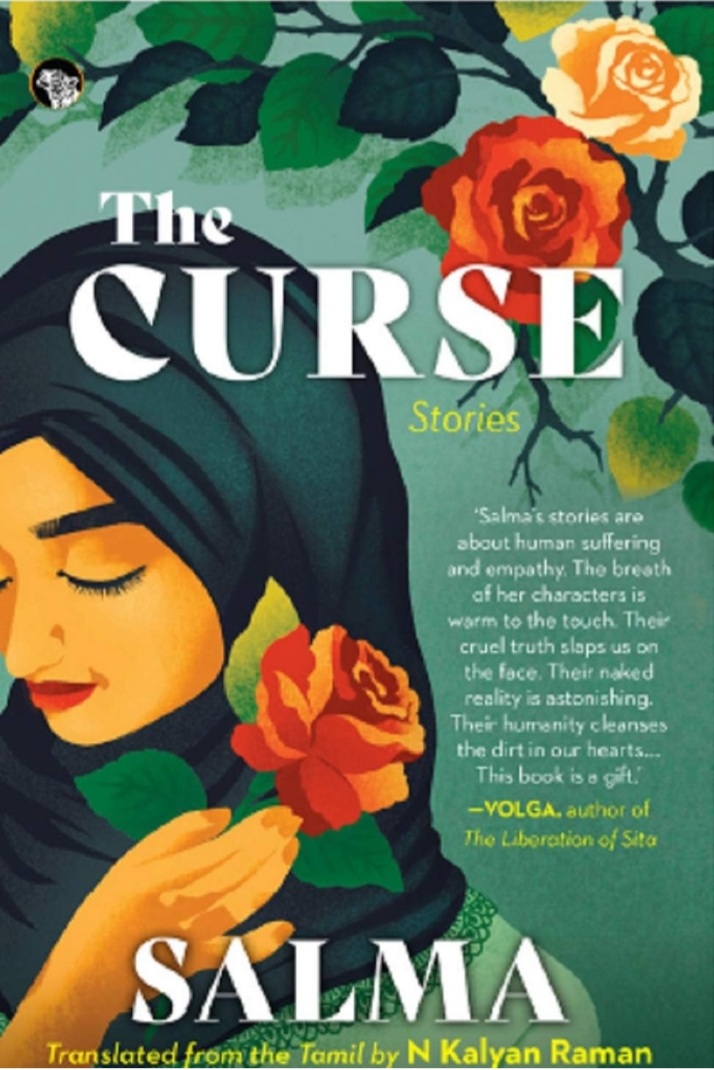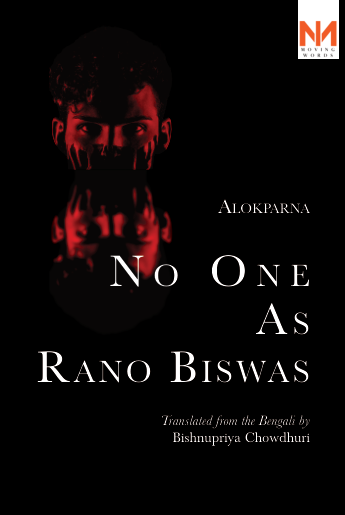A BOOK REVIEW BY SHUBHA SUNDAR GHOSH
Salma needs no introduction. The Tamil born writer and activist, Rakkiaiah alias Salma has out spoken about the conditions that society and it’s people places women through each and every day. The small anthology of short stories The Curse is another window into the bleak realities of these women who suffer in silence or in rage till their voices are choked. Salma and her characters are life-like. In a recent article, Salma opened up about how people around her reacted when she began writing at a tender age. Being from a stringent religious social background, her environment did not take to a girl who could write and read and especially write for audiences outside, with happy faces. She had gone through immense trials and questions for her actions. The gaze that she garnered around her for the act of writing was enough to crack her rebellious voice. Yet she wrote. Just like her characters, Salma did not budge. The stories in The Curse are exemplary enough.
In The Curse, we see stories that talk of the impossibilities of relationship. They talk of spaces that are personal. They talk of desires. The story ‘Atonement’ is one such. The character of the old lady dreams of her deceased husband who visits her every other day. Throughout the story, it is the old lady whose speech guides the readers to the end. French feminist and literary theorist Hélène Cixous in her 1975 essay “The Laugh of the Medusa” puts forward a term Écriture féminine Or Literature feminine to establish a genre of women’s writing that depart from the traditional patriarchal structures of structure, form, language and style to talk about the experiences of women and their realities. The patriarchal mode of storytelling is not capable enough to articulate these experiences thus this intended departure. Similarly, the whole story of “Atonement” is an empty vessel that carries the thoughts and desires and wish fulfilment of the old lady. Her words are fragmentary and her experiences are deemed non-cohesive. Yet Salma gives her the space to articulate them in her own way. She listens to these speeches of delirium. The old lady wished her husband to be grateful and a bit thankful. She took care of him and their family since they were married. Her wishes and desires were not fulfilled till the end until the deceased husband visits her and asks for forgiveness. The story ends there. Desires of women in society are always seen under a bad light, transgressive. But Salma writes about them. In the story “Black Beads and Television”, we again confront a woman who is madly in love with television and cinema. Naturally it tends to hinder her life to the point where her husband is aghast by her actions. She doesn’t do her household chores and procrastinates about them by watching the newly bought television. In the due course, we get to know that she sold her gold necklace to buy the television about which her husband is deeply enraged and upset. She replies that a black bead of necklace will do and continues to watch the television. The story tells different things all at once. Cinema and television were able to provide her the happiness that her marital life could not. Wearing a gold chain on the outside does not say a least about what goes on inside a marriage. It would rather flaunt her husband’s love and care of her and would wash away her voice with it. Why would she fall in love with cinema and television? Was it because it related and talked to her in ways that we the readers could possibly never know? Was it also because a non-living entity and an art form reached out to her in a way that the people even her closest ones around her could not? Clearly, she was seen as someone who’s only duty was to serve her husband and be the docile submissive wife that society expected to. She broke away from these expectations so much so that a gold chain from her husband was not any different from a black beaded chain. Abbas Kiarostami’s film “Close Up” too follows a man who lives for cinema. He duped his identity and claimed to be an acclaimed director for the love of cinema. It is heard that all alternative films search around for at least one audience like that of Hossain Sabzian, the character in the film. But here we see Salma, searching for the story of a lady whose life is not shown in a movie, whose life is not a worldwide famed story. It is rather a story of silent suffering and immense desires. Salma puts her into focus to tell about numerous such lives throwing us in turn in an eternal search for stories like that of Zakiramma.
Another interesting fact to look out for is the cover of the book. It is a veiled girl who seems to be graceful in her own terms and holds a rose close to her. It could be a coincidence that the last frame of “Close Up” is a freeze frame of Hossain Sabzian with a flower pot in his hand. Just like Kiarostami’s intension to transform a character who is a literal fake and committed an identify theft to the most beautiful person in a frame by the end of film, this book’s cover seems to fulfil the same function. Girls and women who are oppressed and deemed transgressive for who they are and for their human emotions and desires is portrayed graceful by the end of each story. Each conclusion brings us to the point where we understand the circumstancial contingency of the female characters as Salma lets them speak for themselves. They tell their own stories to say what they are denied throughout lifetimes. It is a beautiful engagement that Salma makes with her characters and reader. Needless to say, Salma’s multi pronged stories speak for themselves. They definitely demand readers to understand and contemplate spaces of the personal and private in a very different light.
Also, read Suspected Poems Book Review by Shubha Sundar Ghosh and published published in The Antonym:
Follow The Antonym’s Facebook page and Instagram account for more content and exciting updates.
































0 Comments